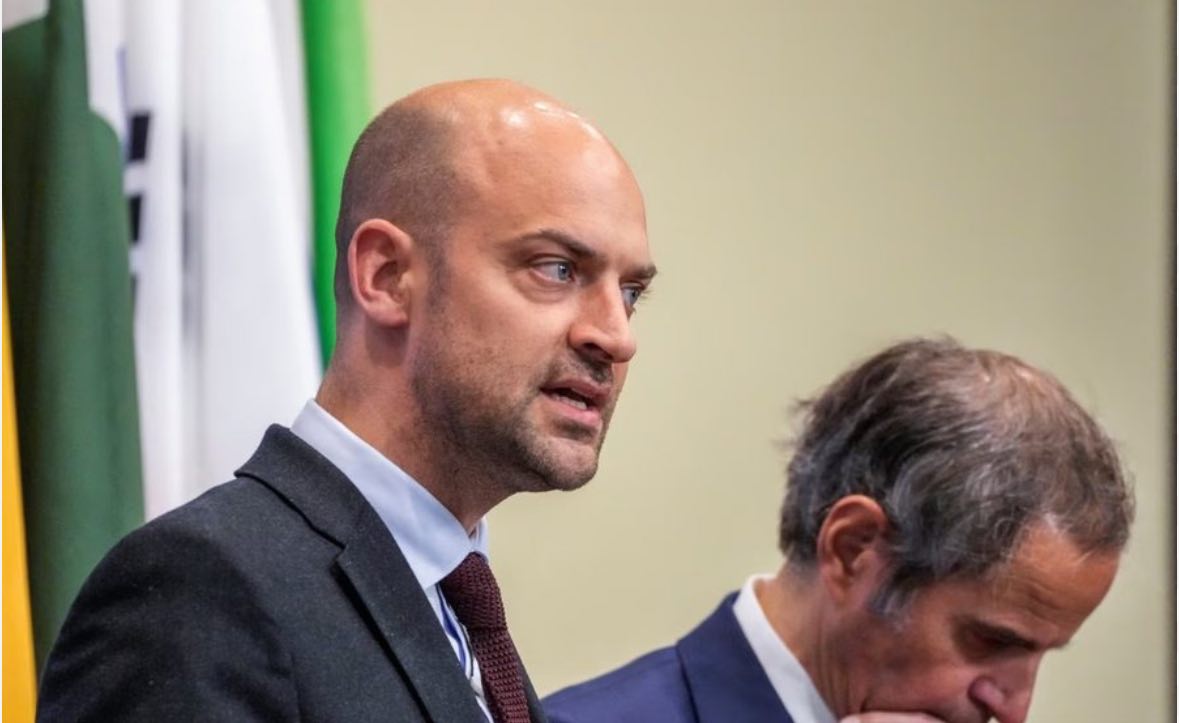From Istanbul to Paris, Diplomacy on the Brink of Explosion
From Istanbul to Paris, Diplomacy on the Brink of Explosion
According to the IranGate News Agency, while a new round of negotiations between the Islamic Republic of Iran and the European Troika of France, Germany, and the United Kingdom, along with representatives of the European Union, was recently held in Istanbul, statements by Jean-Noël Barrot, the French Foreign Minister, regarding the necessity of reaching a comprehensive agreement that goes beyond nuclear issues to include missile and regional dimensions, have sparked a wave of reactions at the media and political levels.
These statements, made only two days after the end of the negotiations, accompanied by a threatening statement from the Troika leaders about the possible activation of the snapback mechanism, have cast doubt among some analysts about the future of the diplomatic path and the level of goodwill from the European parties.
This report takes a look at the various aspects of these positions, their reflections in the diplomatic space, and the existing challenges in reviving the nuclear agreement, focusing on the requirements of a real, balanced dialogue based on common interests.
Reviewing the Process of Iran-Europe Negotiations, the Necessity of Maintaining Diplomatic Frameworks
Following the holding of a new round of talks between Iran and the European Troika of France, Germany, and the United Kingdom, and the European Union in Istanbul, recent statements by Jean-Noël Barrot, the French Foreign Minister, about the necessity of reaching a comprehensive agreement that includes not only nuclear issues but also missile and regional dimensions, have sparked a wave of reactions.
These remarks, made only two days after the end of the negotiations, along with a warning statement from the Troika leaders about the possible activation of the snapback mechanism, have complicated the political atmosphere.
The Confluence of Diplomacy and Selective Pressure: Potential or Mandatory
Some observers believe that the timing of these statements from Paris and the Troika’s threatening statement could be seen as a sign of reduced mutual trust between the parties and a shift in Europe’s approach from dialogue to applying pressure. Although the Istanbul talks were a potential opportunity to revive diplomacy, the tone of the statements afterward might suggest that the negotiation path is shifting from a convergent approach to gradual confrontation.
From Iran’s perspective, focusing negotiations solely on nuclear issues is considered not only a technical priority but a political principle. Iranian officials have repeatedly stated in official positions that missile and regional issues are part of the country’s legitimate defense capabilities and foreign policy, and entering negotiations on these matters is seen as crossing red lines.
The Frameworks of Agreement and New Challenges
The French Foreign Minister’s proposal to expand the dimensions of the agreement practically means moving away from the initial framework of the JCPOA in 2015, an agreement designed to limit Iran’s nuclear activities in exchange for lifting sanctions.
Raising missile issues and Iran’s regional role without an initial agreement could derail the negotiation process from the previously agreed path.
However, from the Western parties’ perspective, regional geopolitical developments and the expansion of military capabilities of some regional actors emphasize the need for transparency and review in some strategic areas.
This view, although it can be examined from a security perspective, can lead to complications in the current negotiations, especially if accompanied by threats such as the reinstatement of sanctions.
The Snapback Mechanism: A Tool of Pressure or a Political Stick
The potential activation of the snapback mechanism, which could lead to the automatic return of UN Security Council sanctions against Iran, is clearly a contentious tool.
In a situation where some recent attacks on Iran’s nuclear facilities, which Tehran attributes to Israel, remain at the forefront of Iran’s security concerns, such threats could further escalate tensions.
From the perspective of independent analysts, applying such pressures without considering the need for security guarantees for Iran may lead to increased distrust and even reactions such as reducing nuclear commitments by Tehran, a situation that has precedent in the past.
Shared Responsibility in the Success or Failure of Diplomacy
The role of international actors in the current process is undeniable.
The unilateral withdrawal of the United States from the JCPOA in 2018, which led to the current crisis, remains a negative turning point in Iran’s diplomatic memory.
Additionally, sabotage attacks on Iran’s nuclear infrastructure, which many view as provocative actions, have been identified as a serious obstacle to reviving the agreement.
In the meantime, the European Union is expected to play a balancing role.
However, excessive focus on maximalist demands and simultaneous disregard for Iran’s security concerns could reinforce the perception of a lack of impartiality.
The Outlook for Negotiations Requires Mutual Flexibility
To advance negotiations and increase the likelihood of reaching a sustainable agreement, a balanced approach with mutual understanding and avoidance of excessive demands from both sides is needed. Just as European countries seek to reduce tensions and expand oversight of Iran’s activities, Tehran also seeks respect for its sovereignty, security guarantees, and the gradual lifting of sanctions.
Ultimately, the success or failure of the negotiations depends not only on the content of the demands but also on the tone, timing, and intentions behind them.
If both sides desire a political solution, they must understand that imposing unilateral views will narrow and weaken the path of diplomacy.

